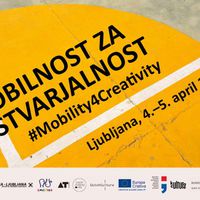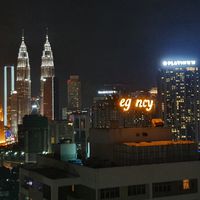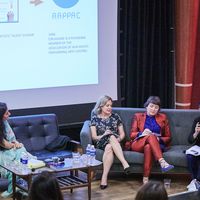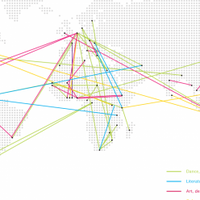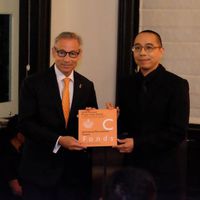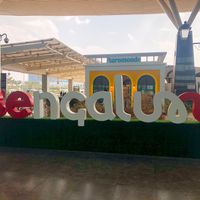Travel & Environmental Sustainability: Can the twain meet?
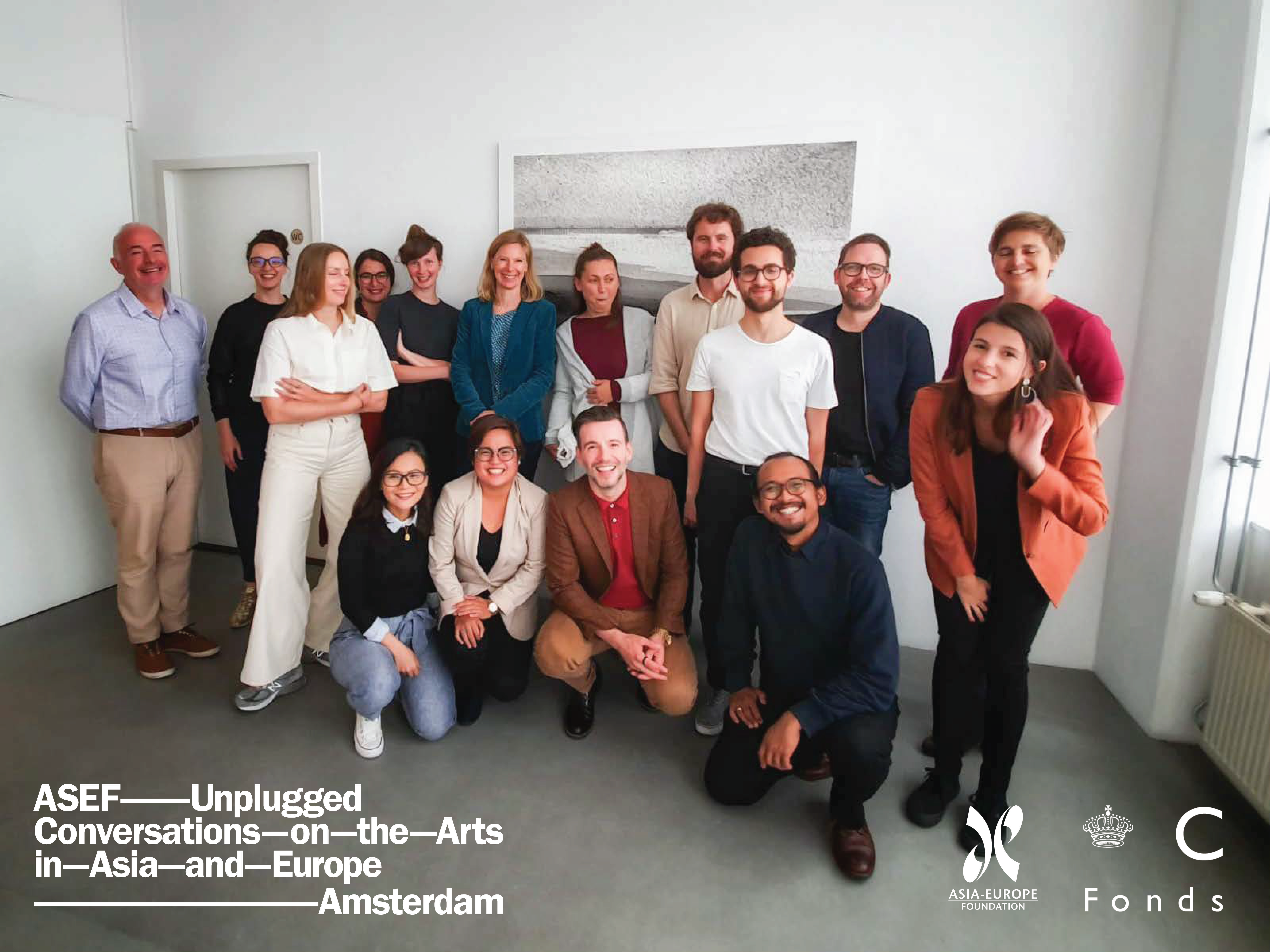
In this day and age, travel and environmental sustainability seem to be an oxymoron. There is no doubt that frequent travellers, especially those who travel by air, contribute a negative impact to our environment, climate and the earth’s resources in general. Because of this, people have begun to question the motivations and methods for mobility. However, there is also no doubt that mobility remains the backbone for international cultural cooperation, so the big question is: how we can reconcile the continual need for international travel alongside the climate change challenge?
The Asia-Europe Foundation (ASEF) collaborated with the Prince Claus Fund to organise ASEF Unplugged-Amsterdam, the 19th edition of ASEF’s event series facilitating conversations on the arts in Asia and Europe. This edition was a closed-door conversation about promoting and funding international travel in the time of climate change. 14 representatives of cultural mobility funders and information points as well as practitioners of art and sustainability were present.
The discussion in Amsterdam was rich and inspiring, providing some ideas for future work and raising some themes to be further explored. The following 7 key aspects serve to summarise the discussions during the meeting:
- Low flight prices push people to fly even if higher grants are offered for land travel
The prime example of good practice for promoting and funding sustainable mobility in the culture sector is the European Cultural Foundation’s STEP (Supporting Travel for Engaged Partnerships) Programme. STEP gives incentives to land-based travels i.e. 700 euros versus 500 euros for air travel. However, in 2018, there has been a huge drop in requests for the higher lump sum amount for sustainable travel because of the low prices of flights. Ultimately, people still save more money from the lower grant amount offered for flights.
- The responsibility of the funder is evolving
Funders of cultural mobility now have more responsibilities over and above providing financial support to artists and cultural professionals for professional development opportunities abroad. Perhaps they should also now take on the role of creating awareness about the negative environmental impact global air travel causes.
The STEP programme has been impactful because it is a pioneer in promoting sustainable travel. Even though the success of the programme has decreased recently it has created debate and discussions in the field and continues to challenge other mobility operators to revise their own programmes. And even if other funders do not have similar incentives yet, they should think of ways of creating awareness. For example what is the carbon footprint of a 2-day trip by train compared to 1 flight? Various funders can share knowledge and resources and share the same information to their beneficiaries.
- Slow travel
Funders have different mandates in implementing their grants but most, if not all, agree to promote ‘slow’ travel or encouraging their grantees to maximise their mobility in the destination country. This means spending more time in the destination country to create deeper connections with the local community and more collaborative work with other artists.
There was a vibrant discussion on the having a policy for a minimum number of days to stay in the destination country to promote longer stays rather than quick travels or one-off performances. The question is: what is the acceptable minimum number of days to encourage? In this regard, the Operational Study made by On the Move for i-Portunus was a great reference: at the moment, i-Portunus requires a minimum of 15 days and a maximum of 85 days. But the On the Move study shows that 15 days is too long; rather, 5 days is a good minimum and 10 days is optimal (results from interviews with over 2,000 artists and cultural professionals)
- Time saved versus using time wisely
There is no doubt that air travel is more time efficient than land travel. However, for sustainability concerns, people may choose land travel even if it’s slower if the time spent can be used productively. If the goal is to make slower land travel the first choice over flying, then making use of time in long train/bus/car journeys should be discussed. E.g. how can we be productive in a 15-hour train ride? What innovations are needed to make more options in spending this time?
- Funders decide who travels
Funders inevitably decide who travels and who does not. In this vein, all funders present agree that support should go to those who will maximise their mobility, those who will give back to society, those who have the highest potential for a multiplier effect. These also include arts practitioners who synergise with colleagues outside of the arts e.g. art and the environment, art and health, art and social issues.
- Systemic change and influencing policy
Change in mindsets and habits can be achieved by initiating systemic change. E.g. creating awareness about Co2 emissions and adopting strategies to compensate for this. In addition, the creation of a ‘Culture Sustainable Policy’ was discussed. Goals can also be set, e.g. a statement of being Co2 Neutral in year xxxx. For this to become a reality, the synergy of various organisations is essential to influence the policy making process.
- More collaboration between funders and info points
The coming together of cultural mobility funders and info points should happen more often. Regular closed-door meetings should take place to constantly share best practices and brainstorm for future strategies. Establishing joint funds like that of ASEF and the Prince Claus Fund should be more common to pool together resources, widen networks and beneficiaries, and to learn from each other. Also, there should be a system of sharing local knowledge, for example, assessment of a project can be done by peer institutions who are in the area rather than flying staff to do on the ground assessment. This is a more sustainable way of doing project evaluation too.
And finally, the overall conclusion of the meeting was: “The discussion on supporting environmental sustainability is inevitable and we should strive to be the ones driving this discussion rather than being driven by it. We need to have a plan before a plan is imposed on us.”
This article was writen by Fatima Avila, Project Manager, Asia-Europe Foundation (ASEF) with inputs from the Prince Claus Fund Team.
Follow more conversations on arts, culture and heritage at #ASEFunplugged #ASEFculture
ASEF Unplugged is a new event series of the Asia-Europe Foundation focusing on informal peer-to-peer conversations on arts, culture and heritage. It responds to the growing demand from conference audiences for more interactive formats that allow for greater engagement of participants beyond being mere receivers of information.
To know more about ASEF Unplugged & to keep updated of our upcoming events, please visit: https://asef.live/unplugged
ASEF is publicly funded by over 50 partner countries of the Asia-Europe Meeting (ASEM), an informal political dialogue process. The Netherlands is an ASEM partner country.
The Prince Claus Fund was established on 6 September 1996 as a tribute to HRH Prince Claus's dedication to culture and development. Since then, the Fund has created opportunities for connection and exchange and stimulated cultural expression, primarily in Latin America, Africa, Asia, the Caribbean and Eastern Europe.
The Fund honours the outstanding achievement of visionaries at the front-line of culture and development with annual Prince Claus Awards; protects cultural heritage by providing ‘first aid’ to rescue heritage threatened by man-made or natural disasters; supports innovative, high-quality cultural initiatives through grants and mentoring, especially where opportunities are limited, whether by poverty, conflict, marginalisation or political repression; works for and with youth through our Next Generation programme and create networks of exchange.
For more information, please visit: https://princeclausfund.org/
Similar content
from - to
04 Apr 2019 - 05 Apr 2019
By culture360
08 May 2019
deadline
31 Dec 2014
posted on
06 Oct 2017
24 May 2019

